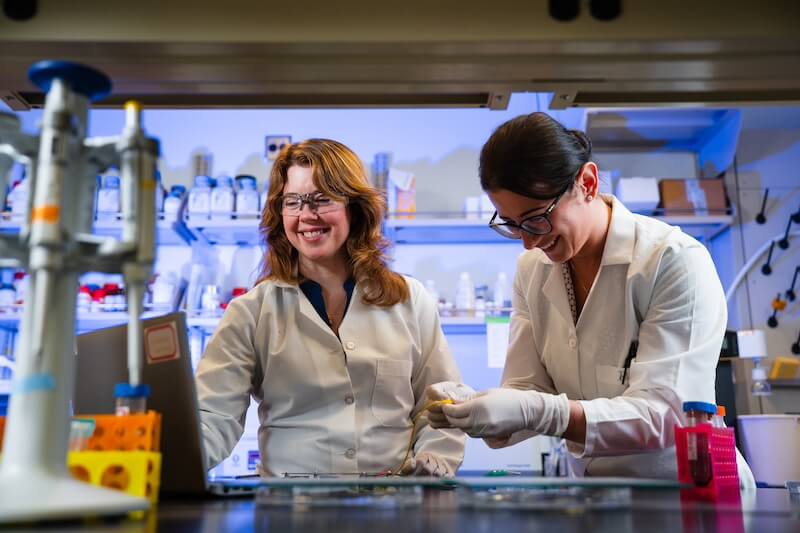Iowa State University Awarded NSF Grant to Explore Development of a Portable Water Purification System
Stacy Renfro, Iowa State University Office of the Vice President for Research
Posted Apr 15, 2024

Stacy Renfro, Iowa State University Office of the Vice President for Research
Posted Apr 15, 2024

A research team led by Iowa State University has been awarded a $649,989 Phase 1 grant from the U.S. National Science Foundation to develop a portable water purification system for communities where basic water infrastructure and water quality monitoring are limited.
Iowa State was one of fifteen multidisciplinary teams selected for the NSF Convergence Accelerator program’s Track K: Equitable Water Solutions to develop technologies and solutions that improve freshwater systems.
The team at Iowa State is proposing a water purification system that uses electrokinetic technology to divert contaminants, such as salts, metals, perfluoroalkyl substances (PFASs), microplastics, viruses and bacteria, from flowing water into a separated waste stream, purifying drinking and brackish water. Additionally, it will include a sensor capable of continuous water quality monitoring.
“Reliable access to clean drinking water is foundational. All forms of personal, social and economic well-being depend on it, and water insecurity is a growing problem,” said Robbyn Anand, an associate professor of chemistry at Iowa State University and the project’s principal investigator.
Working with Anand are Beatrise Berzina, a research scientist in chemistry at Iowa State; Baskar Ganapathysubramanian, a professor of mechanical engineering at Iowa State; Cristina Poleacovschi, an assistant professor of civil, construction and environmental engineering at Iowa State; and Kaoru Ikuma, an associate professor of civil, construction and environmental engineering at Iowa State. Other partners on the project include Ivis Garcia, an associate professor from Texas A&M University, and James Goodrich, a senior science advisor with the Environmental Protection Agency.
The research team will spend the next nine months developing a pre-prototype system that can operate in areas affected by water insecurity. They will focus on the needs of key stakeholders in Puerto Rico, where contamination, frequent shortages and interruptions caused by natural disasters are common.
Anand said that having a clear understanding of the landscape of water insecurity in Puerto Rico would help them develop the desired features for the water purification system.
“We are taking a user-centered design approach to ensure that the solution we develop is informed by community needs,” said Anand. “A technology that meets the complex needs of Puerto Rico has the potential to address water insecurity nearly anywhere.”
The proposed water purification system could significantly impact addressing water insecurity in resource-limited environments or areas that are sensitive to natural disasters or climate change. Anand anticipates this system will be more durable and affordable than current desalination technologies and provide an alternative point-of-use water purification system.
“At the core of convergence research is the idea that teams with diverse expertise are needed to solve the world’s biggest problems,” said Anand. “I am thrilled to work with this team – conversations are engaging, and progress is rapid. The synergy is electric.”
At the end of Phase 1 funding, Anand and her team will participate in a formal proposal and pitch to demonstrate the feasibility of their water purification system and apply for Phase 2 to continue in the NSF Convergence Accelerator program.
About the NSF Convergence Accelerator
Research is often driven by a compelling societal or scientific challenge; however, it may take the researcher community years to develop a solution. To deliver tangible solutions that have a nation-wide societal impact and at a faster pace, the National Science Foundation (NSF) launched the Convergence Accelerator program in 2019. Aligned to the Directorate for Technology, Innovation and Partnerships, or TIP, the Convergence Accelerator is designed to leverage a convergence approach to transition basic research and discovery into practice, the Convergence Accelerator uses innovation processes like human-centered design, user discovery, and team science; and integration of multidisciplinary research and partnerships; the Convergence Accelerator is making timely investments to solve high-risk societal challenges through use-inspired convergence research.
